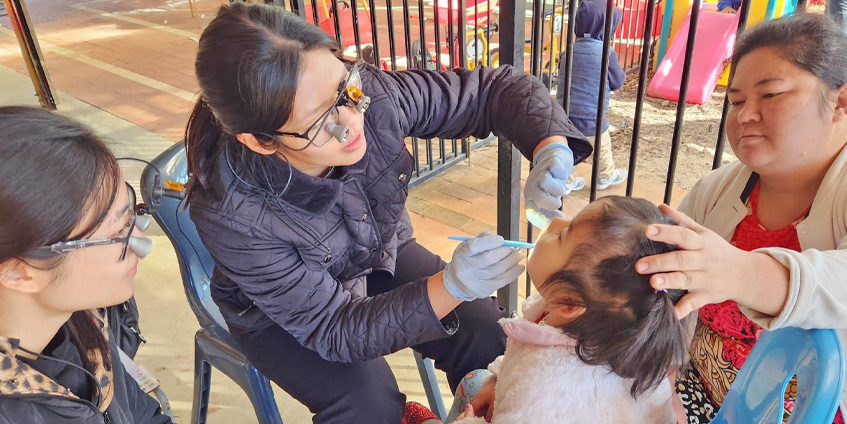Facilitating young children’s access to dental care in rural Western Australia
Taking children aged under four to see the dentist for a checkup is uncommon in Australia, with many parents mistakenly believing ‘baby teeth don’t matter’. In fact, most children aged 0–4 years who see a dentist do so to address a serious problem, not for preventative care.

Good oral health is important for children’s overall health, wellbeing and quality of life. The impact of poor oral health on children is far-reaching: long-term consequences can include poor growth and sleep, learning and speech difficulties, and chronic pain.
Early Childhood Caries (ECC) are preventable but some compounding factors can increase risk, including rural living, low parental education, lack of private health insurance, and being from an Aboriginal or Culturally and Linguistically Diverse (CaLD) background.
Although the State and Federal Governments have schemes in place to help low income and rural families cover some of the cost of dental care – which is not routinely covered under Medicare – access to dental services remains challenging for these families.
After recognising poor oral health among its young children as an urgent priority, one Western Australian community came up with a plan to improve access to dental care.
Central Great Southern (CGS) – a rural area encompassing the Shires of Katanning, Gnowangerup, Kojonup and Broomehill-Tambellup – is one of four areas of disadvantage across WA taking part in the Early Years Partnership (EYP), a 10-year (2018 to 2028) commitment between the Western Australia (WA) State Government (Departments of Communities, Health, and Education) and the Minderoo Foundation to improve child wellbeing and school readiness among children aged 0–4 years.
With support from the EYP, the CGS community developed an initiative that has seen community members and key stakeholders collaborate to reduce barriers to accessing oral health care, including cost, travel and accommodation, and dentist availability.
Working together, they have delivered low- or no cost-oral health screenings and treatment locally, including surgical procedures when required.
The initiative used outreach to meet children where they lived, learned and played. Instead of parents taking their children to an appointment at a clinical facility, the paediatric dentist and final year dental students attended the places where young children frequented, including daycare centres, playgroups and kindergartens.
Dental screenings were conducted in familiar, safe and trusted environments where children were at ease.
“I think it was a good way to screen the kids because their mothers were just taking their children to the park for a play… and they could just get a screen [dental screening]” reflected a community member.
This initiative also upskilled allied health staff in telehealth dental practices and dental trauma procedures.
When the clinical team wasn’t in the community and an allied health professional identified a child needing dental care, photographs were taken of the child’s teeth and sent to a Perth dentist for review.
Combined, these strategies greatly improved service access and reduced the previously identified barriers around cost, travel and accommodation, and practitioner access.
A key to the success of the program was the involvement of community members who had strong connections to families not engaged with government or mainstream services. These trusted intermediaries identified at-risk children, provided transport, assisted with paperwork, and reduced many logistical barriers.
Ultimately the strength of this work lies with the incredible dedication and collaboration of the organisations and individuals involved to address the inequities of dental service provision in rural settings.
Barriers to care that are known to exist in the community were challenged and overcome by novel, solution-focused practices, and continued collaboration among the agencies involved in this initiative.
This article, written by Patricia Lewis from The Kids Research Institute, originally appeared in Partyline.